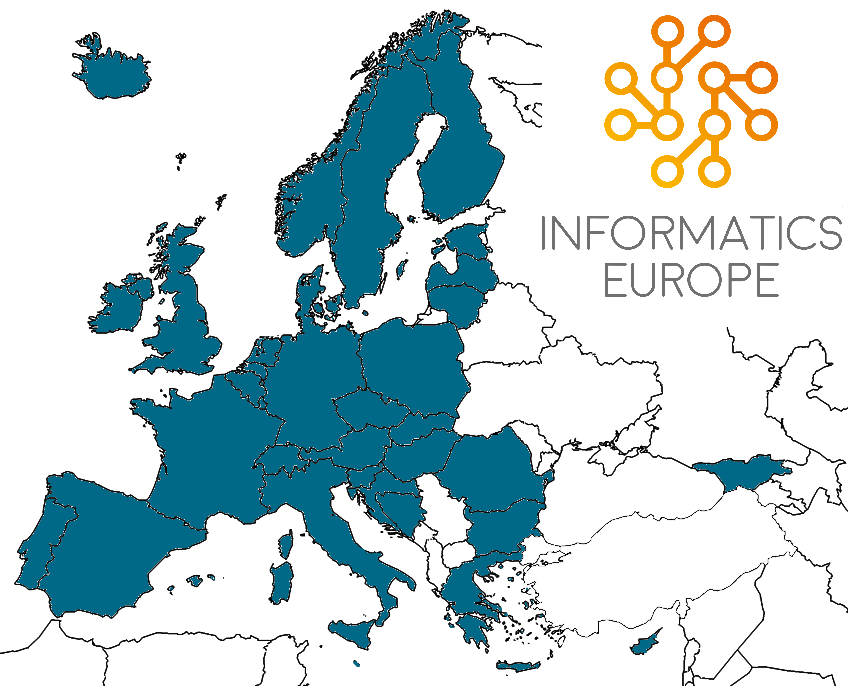We are proud to announce the winner of this year’s Informatics Europe 2020 Best Practices in Education Award.
 Organised by Informatics Europe and sponsored by Microsoft, the Best Practices in Education Award was presented at a special ceremony held online via Zoom, during the 16th European Computer Science Summit (ECSS 2020). The honoured project is Master of IT, which was submitted by a Coordination Committee on behalf of Aalborg University, Aarhus University and University of Southern Denmark.
Organised by Informatics Europe and sponsored by Microsoft, the Best Practices in Education Award was presented at a special ceremony held online via Zoom, during the 16th European Computer Science Summit (ECSS 2020). The honoured project is Master of IT, which was submitted by a Coordination Committee on behalf of Aalborg University, Aarhus University and University of Southern Denmark.
“More than 1800 Danish IT professionals have attended the Master of IT programme since the beginning in 2006”, explains Bettina Lundgaard Hansen. “The Master has thereby succeeded in including students from various age and experience in the educational path, with 55% of them between 40 and 60 years old. Alongside their full-time work, all of them attended one or more courses in the degree programme in the fields of IT teaching, IT development, IT management, IT security and IT implementation. Students can thereby create their own degree programme at their own pace or just study the subjects or courses, which they find relevant for their lifelong learning. The purpose of the degree programme is to help closing the digital talent gap, by providing 30 courses, each of them worth 15 ECTS.“
Professor Elisabetta Di Nitto (Politecnico di Milano), Chair of this year`s Award Committee declares: “This year we honour the outstanding educational initiative that is dedicated to promote and support lifelong education to reduce the talent gap we are experiencing in Information Technology. The winner is a well-structured Master of IT born from the educational cooperation between three universities in Denmark, offering a lifelong learning part-time master’s degree programme for IT professionals. The participants come from various backgrounds, including IT businesses, the public sector, industry, the financial sector, the health sector and the teaching community. The Master of IT provides knowledge on the latest theories and principles behind the development and use of IT. At the same time, it presents the students with methods and techniques that are relevant for the students’ current and future work profile."
Professor Di Nitto adds: "A very special mention and the appreciation of the whole Award Committee goes also to the project Kodluyoruz (“We Code” in English) that focuses on unemployed / underemployed youth, especially women and refugees and offers technical education and software skills to them, thus increasing the likelihood of later on finding a qualified job.”
The Best Practices in Education Award is sponsored by Microsoft and carries a prize of 5,000 Euros. The grant is to be used for further work on the selected project.
“Microsoft was delighted to receive such strong nominations for the Informatics Europe 2020 Best Practices in Education Award. We hope the winners’ proposal will inspire other organizations to develop their own projects that promote lifelong education in Informatics and help close the existing talent gap,” explains Dr Evelyne Viegas, Senior Director of Global Research Engagement at Microsoft Research. For more information, visit www.microsoft.com/research.
About the Best Practices in Education Award
In line with its mission to foster and promote teaching quality in Informatics, Informatics Europe annually presents the "Best Practices in Education Award". The 2020 edition was devoted to lifelong education and talent gap in Informatics.
Visit www.informatics-europe.org/awards/education-award to learn more.
About Informatics Europe
Informatics Europe represents the academic and research community in Informatics (or Computer Science) in Europe. Bringing together university departments and research laboratories, it creates a strong voice to safeguard and shape quality research and education in Informatics. With over 140 member institutions across 33 countries, Informatics Europe promotes common positions and acts on common priorities.
Visit www.informatics-europe.org to learn more.


 Netlogica
Netlogica